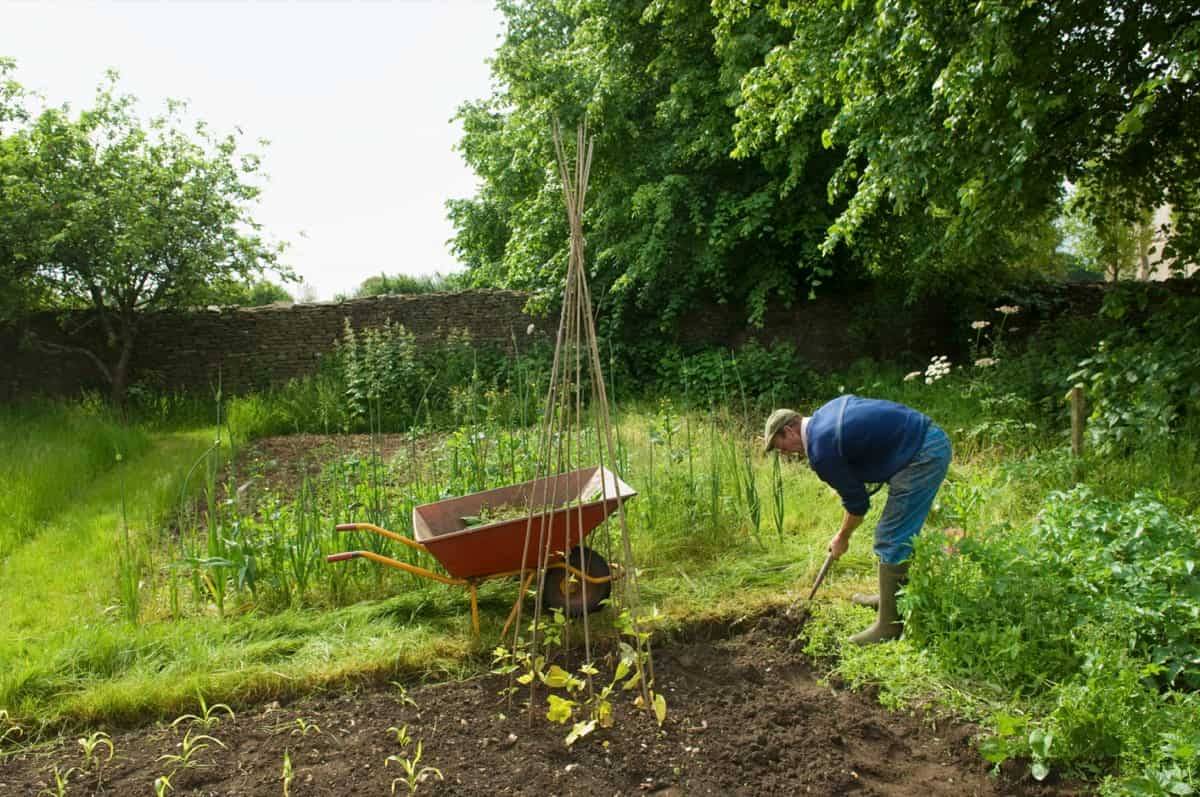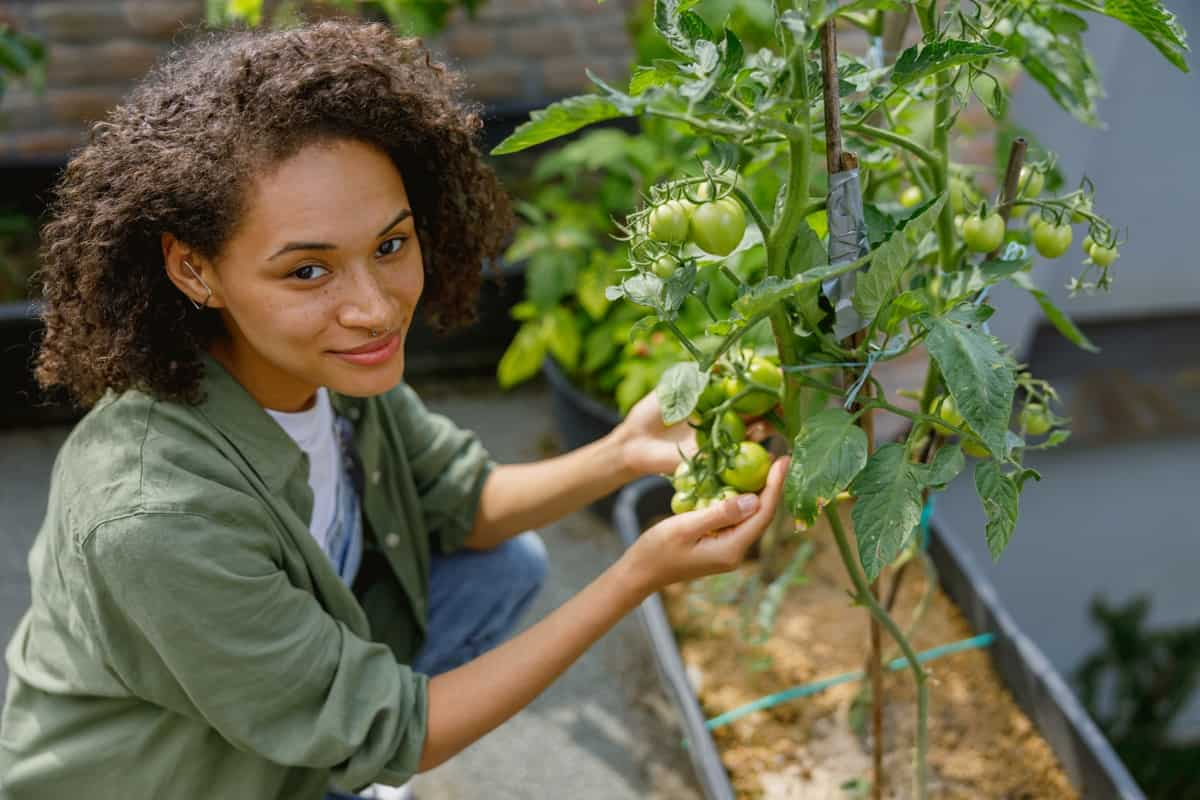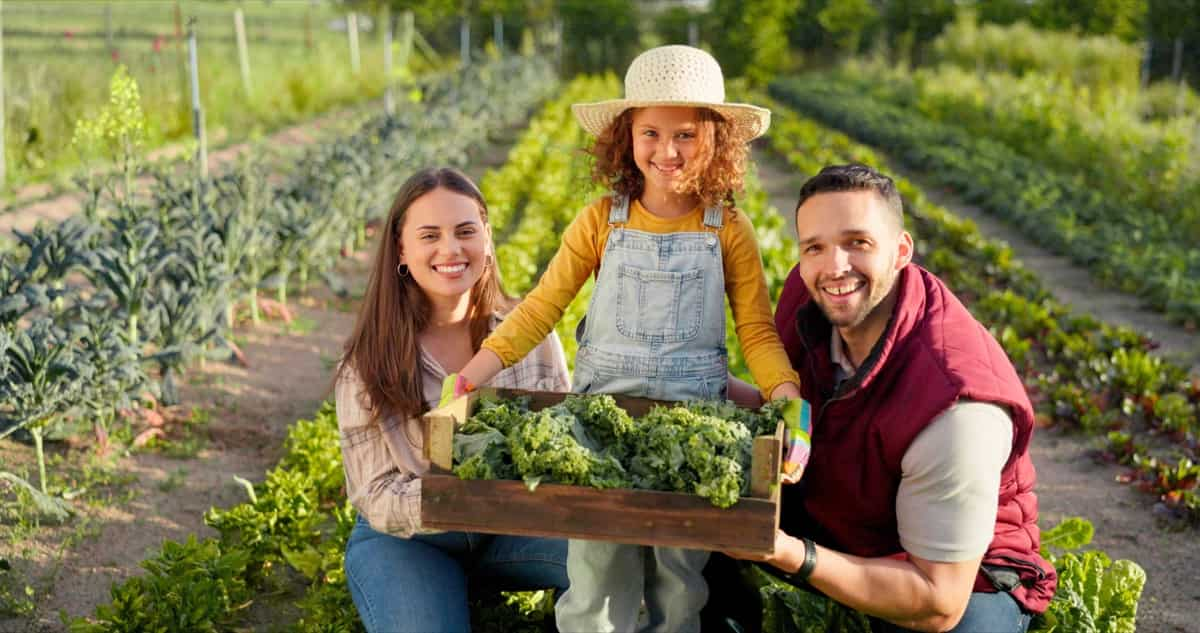Gardening in Georgia can be an incredibly rewarding experience, especially if you’re growing your vegetables. When should you plant vegetables in Georgia? Well, it depends on where you live in the state and what you intend to grow. Georgia falls into multiple climate zones, which affects the planting calendar for Georgia.

Month-by-month gardening in Georgia can differ significantly from north to south. It’s also worth mentioning that you can grow vegetables in winter in Georgia, especially in the southern regions. Wondering how long is your growing season in Georgia? In the north, it might be shorter than in the south. Let’s dive into the best vegetables to grow in Georgia throughout the seasons.
When to Plant Vegetables in Georgia
Understanding Georgia’s Climate Zones
Georgia is divided into different climate zones that can considerably impact when you should plant your vegetables. These zones range from the cooler Appalachian region in the north to the warmer Coastal Plain in the south. Knowing Georgia’s zone for planting vegetables can help you determine the most suitable planting dates. Northern Georgia generally falls under USDA Zone 7a and 7b, while the southern parts are in Zone 8a and 8b. This affects the types of vegetables you can plant and the optimal planting and harvesting times.
Factors Affecting Vegetable Planting Dates in Georgia
Multiple factors can affect when you plant your vegetables in Georgia. Weather events, soil conditions, and even the specific location within the state can influence your planting schedule. While understanding the climate zones is critical, other factors, such as frost dates and soil temperature, are also significant. This is particularly true for certain vegetables sensitive to cold or heat. Watching the local weather forecast is good, as unpredictable weather changes can make a huge difference.
Planting Vegetables in Northern Georgia
For northern Georgia, your options may be slightly limited compared to the southern regions. The growing season here is shorter, and you’ll need to focus on vegetables tolerating cooler conditions. Good options include lettuce, peas, and kale for early spring planting. As you approach late spring and early summer, switch your focus to vegetables like tomatoes, corn, and zucchini. Keep in mind, when planting these veggies in northern Georgia, the timing depends on the last frost date in your area.
In case you missed it: What to Plant Under Oak Trees in Texas, Florida, Georgia, California, and Louisiana

Optimal Vegetable Planting Times for Southern Georgia
Southern Georgia enjoys a longer growing season and milder winters. This opens up more opportunities for month-by-month gardening in Georgia. You can start with vegetables like radishes, spinach, and carrots in early spring. Moving into late spring and early summer, consider planting eggplant, okra, and peppers. Moreover, you can even grow vegetables in winter in southern Georgia. Winter vegetables to consider include cabbage, collards, and broccoli. These veggies can endure the mild winter conditions and offer a bountiful harvest.
Vegetable Planting Schedule for Georgia
Knowing how long is your growing season in Georgia will help you create a more precise planting calendar. Aim to start your early spring vegetables in northern Georgia in late February to early March. Late spring and early summer vegetables can be planted from late April to early May. In southern Georgia, the growing season extends, allowing for early spring planting in late January to February and late spring to early summer planting in late March to April.
Recommended Vegetables for Early Spring Planting in Georgia
In early spring, some of the best vegetables to grow in Georgia include lettuce, peas, radishes, and turnips. These vegetables can tolerate colder temperatures and are ideal for northern and southern regions. The soil should be workable and free of frost for optimal results. Monitor soil temperatures and conditions to ensure successful germination and growth.
Late Spring and Early Summer Vegetable Planting Guide for Georgia
As the temperatures rise, late spring and early summer offer more vegetable options. In northern Georgia, consider planting tomatoes, corn, and cucumbers. In southern regions, eggplant, okra, and peppers are excellent choices. These vegetables prefer warm soil and temperatures, making them ideal for this period. Remember that as the temperatures rise, you’ll also need to adjust your care routines, including watering and fertilizing.
Fall Vegetable Planting Tips for Northern Georgia
Fall in northern Georgia is another season that offers a great window for planting. As temperatures drop, you’ll want to shift your focus to cool-season crops. Vegetables like Brussels sprouts, cauliflower, and beets thrive in the milder fall temperatures. Getting these plants in the ground from late August to early September is best. This timing ensures that your plants have enough time to mature before the first hard frost arrives. Pay close attention to soil moisture levels, as fall can sometimes bring unexpected dry spells.
In case you missed it: Growing Peppers in Georgia: When to Plant Bell Peppers, Hot Peppers, Banana Peppers, and Jalapenos

Ideal Fall Planting Dates for Southern Georgia
In southern Georgia, fall presents an extended opportunity for vegetable planting, thanks to the warmer climate. You can plant crops like Swiss chard, collard greens, and kohlrabi well into September and October. These vegetables are quite frost-tolerant and can grow into the early winter months. Given the milder temperatures, you might even consider planting certain root vegetables like radishes and carrots, which will mature quickly and can be harvested before winter sets in.
When to Plant and What Vegetables to Grow in Georgia in Winter
You can grow vegetables in winter in Georgia, especially in the southern parts. Winter is an excellent time to grow leafy greens like kale, spinach, and arugula. You can start planting these as early as late October or November. Even in northern Georgia, if you utilize frost covers or cold frames, you can extend the growing season for certain crops. However, be aware of sudden temperature drops, and make sure your winter veggies are appropriately shielded from extreme cold conditions.
Vegetable Planting Schedule/Calendar Table for Georgia
| Vegetable | Northern Georgia | Southern Georgia |
| Lettuce | Late Feb – Early Mar | Late Jan – Early Feb |
| Peas | Late Feb – Early Mar | Late Jan – Early Feb |
| Radishes | Late Feb – Early Mar | Late Jan – Early Feb |
| Turnips | Late Feb – Early Mar | Late Jan – Early Feb |
| Tomatoes | Late Apr – Early May | Late Mar – Early Apr |
| Corn | Late Apr – Early May | Late Mar – Early Apr |
| Cucumbers | Late Apr – Early May | Late Mar – Early Apr |
| Eggplant | Late Apr – Early May | Late Mar – Early Apr |
| Okra | Late Apr – Early May | Late Mar – Early Apr |
| Peppers | Late Apr – Early May | Late Mar – Early Apr |
| Kale | Early – Mid Sep | Late Aug – Early Sep |
| Collards | Early – Mid Sep | Late Aug – Early Sep |
| Beets | Early – Mid Sep | Late Aug – Early Sep |
| Carrots | Early – Mid Sep | Late Aug – Early Sep |
| Cauliflower | Early – Mid Sep | Late Aug – Early Sep |
| Brussels Sprouts | Early – Mid Sep | Late Aug – Early Sep |
| Radishes (Winter) | Late Nov – Early Dec | Late Oct – Early Nov |
| Spinach (Winter) | Late Nov – Early Dec | Late Oct – Early Nov |
| Mustard Greens | Late Nov – Early Dec | Late Oct – Early Nov |
| Carrots (Winter) | Late Nov – Early Dec | Late Oct – Early Nov |
| Broccoli (Winter) | Late Nov – Early Dec | Late Oct – Early Nov |
| Cabbage (Winter) | Late Nov – Early Dec | Late Oct – Early Nov |
In case you missed it: Best Time to Plant Okra in Georgia: Growing in Central, North, South, East, and West Regions

Conclusion
Georgia’s varied climate zones and extended growing seasons offer plenty of year-round vegetable gardening opportunities.
- Ultimate Guide to Ossabaw Island Hog: Breeding, Raising, Diet, and Care
- Ultimate Guide to Juliana Pig: Raising Facts, Size, Diet, Care, and Lifespan
- Raising Lleyn Sheep: Disadvantages, Price, Uses, Characteristics, and Care
- Ultimate Guide to Meishan Pig: Breed Facts, Breeding, Raising, and Care
- Ultimate Guide to Teacup Pigs: Raising, Diet, Lifespan, Cost, and Care
- Guide to Raising Poll Dorset Sheep: Facts, Profile, Characteristics, Uses, and Care
- Ultimate Guide to Bighorn Sheep: Characteristics, Diet, Lifespan, Breeding, and Lifecycle
- Ultimate Guide to Raising Katahdin Sheep: Farming Facts, Breed Profile, Uses, and Care
- Ultimate Guide to Raising Oreo Cows: Belted Galloways Farming Facts, Profile, Uses, and Care